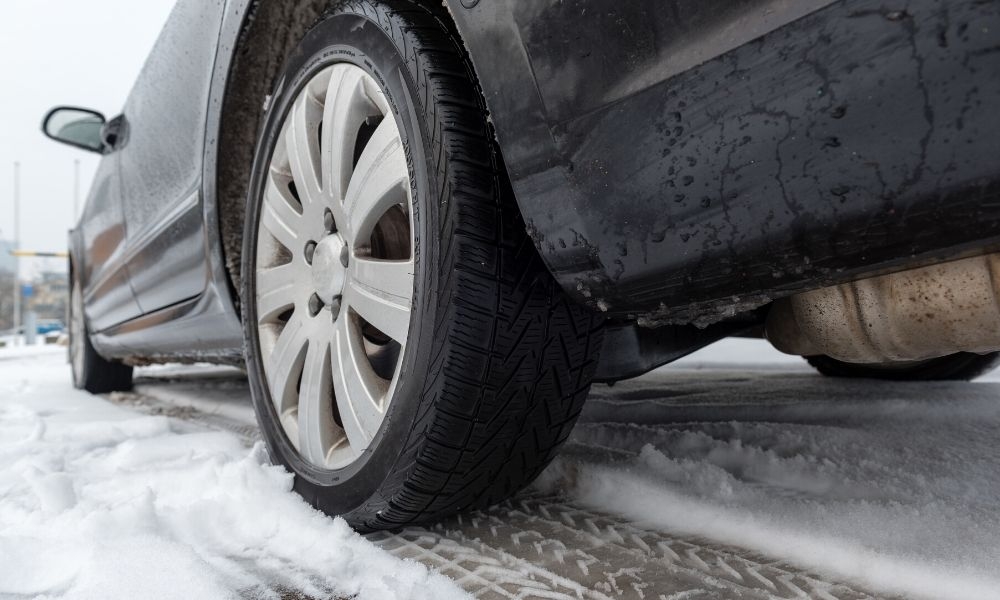
Road salt lowers water’s freezing temperature and helps keep ice from forming. It substantially reduces accidents on treated roads. But how do aluminum and alloy rims fair against the winter salt we put on our roadways? Drivers should be grateful for the added safety, but they should stay mindful of the negative effects of road salt on cars. We address specifically how road salt affects your rims and how you can protect them.
Rust and Corrosion
We all know that rust is bad for cars, but are rusty wheels dangerous? Rust will happen eventually whenever iron meets oxygen. You’ll remember from middle school science class that a water molecule has two hydrogen atoms and one oxygen atom, right? H2O. Water adds more oxygen to react with iron, which accelerates oxidation. In winter, your trusty road crew adds more “free floating ions” in the form of sodium and chloride (a.k.a. salts) that dissolve in the water and speed up rust formation even more. What’s worse is that iron oxide (rust) molecules are bigger that plain old iron molecules. This means rust can spread, and even cause your wheels to get stuck onto your car, which makes it difficult or impossible to change a tire.
Salt is hard on all kinds of metal, and they can cause your shiny rims to crack and flake, ruining the finish on aluminum alloy wheels. Rust isn’t necessarily dangerous to rims, but it will cause you to need a replacement set eventually.
An Ounce of Prevention
The best way to deal with road salt damage to alloy and aluminum rims in winter is not to let it happen in the first place. Maybe your wheels had a good protective coating when you bought them. Whether or not they’ve got a clear coat on them, you still must think about how road salt affects your rims. Keep your wheels clean, and apply a coat of wax before the winter season starts.
Once the weather gets ugly and the salt trucks are on the move, try to avoid driving through puddles where salty water collects in higher concentrations. Wash your car once a week and after every snowstorm. Use a car wash that doesn’t recycle the wash water, as re-used water sprays the salt from all the other previously washed cars back onto yours. Don’t forget to get the undercarriage sprayed.
If you clean your rims yourself, use an acid-free cleaner that’s safe to use on car paint.
Don’t Let Snow Melt Off in the Garage
How long can you leave salt on your car? Generally, you want to get road salt off your vehicle whenever you can. It’s great to get out of a storm and into a warm garage, but allowing the salty snow mess to melt on your car is a recipe for rust. Knock it off, wipe it off, or wash it off; no matter you choose, get that filthy road brine off your rims as soon as you can.
Invest in a Set of Winter Rims
If you’re very concerned about the look of your rims, you might want to invest in a completely separate set of rims to use for the winter season. Changing out your aluminum or alloy rims to preserve your shiny summer wheels from the winter salt might be worthwhile. You should still care for the winter rims as attentively as your summer chrome or shiny alloy ones—rust is inevitable if you leave your wheels coated with a salty winter mess. If you’re not sure which rims or wheels are right for your car, just ask. At WheelerShip, we’ll help you select high-quality replacement wheels and rims, such as our Hyundai Sonata rims, that will get your car through the winter with confidence!
